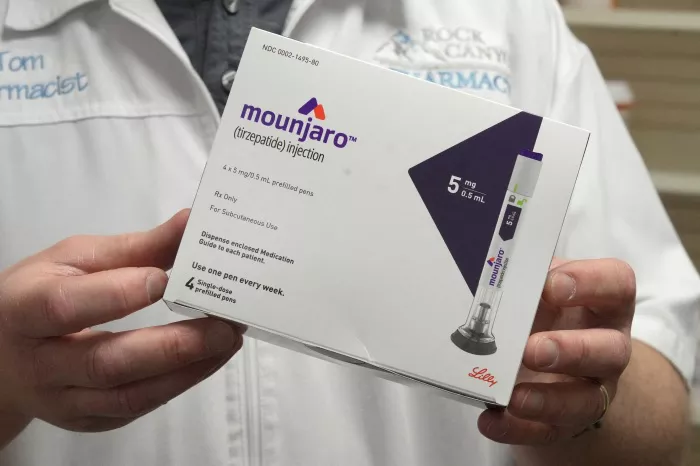Introduction:
Pregnancy is a time of immense change and growth for both the mother and the developing fetus. It is important for expectant mothers to ensure that they are getting adequate nutrition to support the healthy growth and development of their baby. Vitamins play a crucial role in pregnancy, as they are necessary for the proper functioning of the body and the growth and development of the fetus. In this article, we will discuss which vitamins are needed for pregnancy and why they are important.
Why Vitamins are Needed for Pregnancy:
Vitamins are essential nutrients that the body needs to function properly. During pregnancy, the mother’s body undergoes significant changes to support the growth and development of the fetus. Vitamins play a critical role in this process, as they are necessary for the proper functioning of the body and the growth and development of the fetus. Without adequate vitamin intake, both the mother and the developing fetus may be at risk for a range of health problems.
Which Vitamins are Needed for Pregnancy?
There are several vitamins that are particularly important for a healthy pregnancy. These include:
Folic Acid: Folic acid is a B vitamin that is essential for the growth and development of the fetus. It helps to prevent birth defects of the brain and spine, such as spina bifida. Women who are planning to become pregnant should begin taking folic acid supplements at least one month before conception and continue taking them throughout the first trimester.
Iron: Iron is essential for the production of hemoglobin, which carries oxygen to the cells. During pregnancy, the mother’s blood volume increases, and more iron is needed to support the increased production of red blood cells. Iron deficiency can lead to anemia, which can cause fatigue, weakness, and other health problems.
Calcium: Calcium is important for the development of the baby’s bones, teeth, and muscles. It is also necessary for the mother’s bone health. Pregnant women should aim to consume at least 1,000 milligrams of calcium per day.
Vitamin D: Vitamin D is important for the absorption of calcium and the development of the baby’s bones and teeth. It is also important for the mother’s bone health. Pregnant women should aim to get at least 600 international units (IU) of vitamin D per day.
Vitamin C: Vitamin C is important for the growth and repair of tissues in the body. It also helps the body absorb iron from plant-based foods. Pregnant women should aim to consume at least 85 milligrams of vitamin C per day.
Vitamin B6: Vitamin B6 is important for the development of the baby’s brain and nervous system. It also helps to relieve nausea and vomiting during pregnancy. Pregnant women should aim to consume at least 1.9 milligrams of vitamin B6 per day.
Vitamin B12: Vitamin B12 is important for the development of the baby’s brain and nervous system. It is also important for the mother’s nerve and blood cell health. Pregnant women who follow a vegan or vegetarian diet may be at risk for vitamin B12 deficiency and should consider taking supplements.
How to Get Adequate Vitamins During Pregnancy:
Pregnant women can get adequate vitamins through a balanced diet and supplements. Here are some tips for getting adequate vitamins during pregnancy:
Eat a variety of fruits and vegetables: Fruits and vegetables are rich in vitamins and minerals, including folic acid, vitamin C, and vitamin A.
Choose whole grains: Whole grains are a good source of B vitamins, including folic acid.
Consume lean protein: Lean protein sources, such as chicken, fish, and beans, are rich in iron and other important nutrients.
Take a prenatal vitamin: Prenatal vitamins are specially formulated to provide the vitamins and minerals that pregnant women need.
Get adequate sunlight: Sunlight is a natural source of vitamin D. Pregnant women should aim to get at least 15 minutes of sunlight per day.
Consider fortified foods: Some foods, such as milk and cereal, are fortified with vitamins and minerals, including calcium and vitamin D.
Conclusion:
Vitamins are essential for a healthy pregnancy. Folic acid, iron, calcium, vitamin D, vitamin C, vitamin B6, and vitamin B12 are particularly important for the growth and development of the fetus and the health of the mother. Pregnant women can get adequate vitamins through a balanced diet and supplements. It is important for expectant mothers to talk to their healthcare provider about their vitamin needs during pregnancy and to follow their recommendations for a healthy pregnancy.
[inline_related_posts title=”You Might Be Interested In” title_align=”left” style=”list” number=”6″ align=”none” ids=”4102,4100,4066″ by=”categories” orderby=”rand” order=”DESC” hide_thumb=”no” thumb_right=”no” views=”no” date=”yes” grid_columns=”2″ post_type=”” tax=””]
































